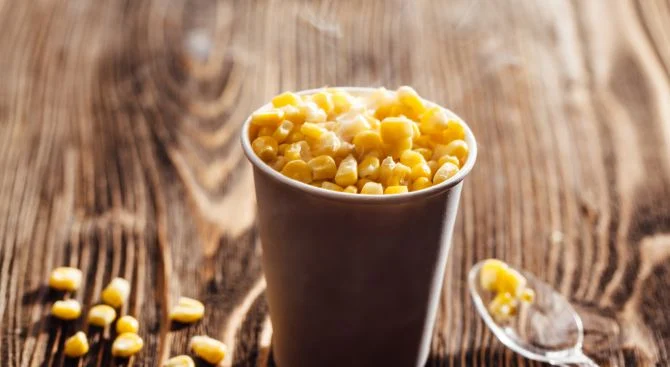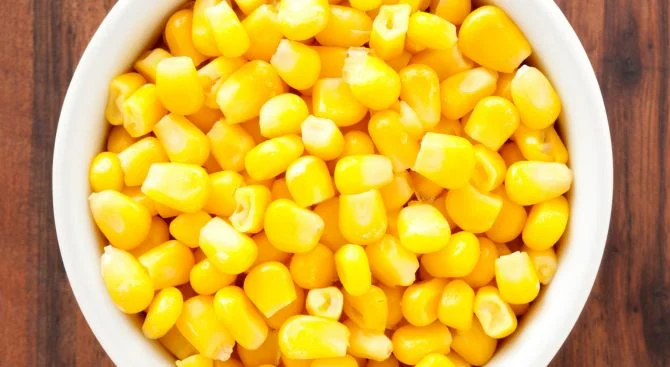The Multiple Health Benefits of Boiling Corn

Corn is one of the most popular and commonly consumed vegetables worldwide. From steaming ears of sweet corn to adding corn kernels to salads, soups and more, there are many tasty ways to enjoy this nutritious veggie. Interestingly, the method of cooking corn can impact its nutrient content as well as how our bodies absorb and utilize the nutrients. Boiling corn specifically has been shown to offer some unique health perks compared to other cooking techniques.
An Overview of Corn's Nutritional Value

- Corn contains a variety of essential vitamins and minerals:
- Vitamin C - An antioxidant that supports immune function and collagen production.
- Thiamin - A B vitamin that helps convert food into energy.
- Folate - A B vitamin that aids red blood cell production and cell growth.
- Magnesium - Supports bone health, muscle and nerve function, blood sugar control and more.
- Phosphorus - Plays a role in bone health, cell repair, hormone regulation and healthy metabolism.
- Potassium - Helps maintain fluid balance, nerve transmission and muscle contraction.
- Manganese - Involved in metabolism, bone formation and wound healing.
Additionally, corn is a good source of fiber which supports digestion, heart health, stabilizes blood sugar and helps maintain a healthy weight.
With this stellar line-up of nutrients, it's easy to see why corn is considered one of the healthier vegetable options. Now let's look at why boiling it can provide maximum nutritional benefits.
Boiling Maximizes Corn's Nutrient Retention
Cooking corn helps break down its tough outer skin, making it easier to digest and absorb the nutrients inside the kernels.- However, some cooking techniques can destroy or leach out certain heat-sensitive vitamins. Boiling does a better job of retaining corn's nutrient content compared to methods like grilling or roasting at high temperatures.
- Studies show boiling results in significantly higher retention of water-soluble B-complex vitamins like thiamin and folate compared to baking or microwaving. Vitamin C levels also remain higher with boiling.
- One analysis found that boiling corn was superior for preserving antioxidants like lutein and zeaxanthin compared to grilling, microwaving or pressure cooking methods.
- Compared to steaming, boiling more thoroughly softens the kernels and releases additional nutrients from the corn's insoluble fiber matrix into the cooking water.
- Overall, research indicates that gentle boiling of corn provides the best nutrient preservation and bioavailability.
Boiled Corn Has a Lower Glycemic Index
- The glycemic index is a scale that ranks foods based on their effect on blood sugar levels. Foods with a lower glycemic index cause a more gradual rise in blood sugar compared to foods with a higher glycemic index.
- Studies reveal that boiled corn has a lower glycemic index than roasted, microwaved or pressure cooked corn. The glycemic index of boiled corn ranges from 48-69, while roasted corn is around 89-103.
- The slower release of sugars into the bloodstream minimizes energy crashes and sugar highs. It also helps manage hunger and portion control.
- This makes boiled corn a better choice for those with diabetes or pre-diabetes and individuals looking to keep their blood sugar levels stable. The soluble fiber in corn further aids glycemic control.
Enhanced Fiber Absorption with Boiling

- Though insoluble fiber is not digestible, cooking corn helps liberate some of this fiber from the corn's tough cell structure. This makes more fiber accessible for intestinal absorption and bacterial fermentation.
- Studies demonstrate that consuming cooked corn, including boiled varieties, leads to a greater intake and retention of insoluble fiber than consuming raw corn.
- More available insoluble fiber can promote satiety, support digestive health and feed the beneficial bacteria in your gut microbiome. The fermentation of corn fiber also produces short-chain fatty acids that provide added digestive and immune benefits.
Boiled Corn Contains More Ferulic Acid
- Ferulic acid is a polyphenol antioxidant found in plant foods like corn. It acts as an anti-inflammatory compound and has been linked to potential anticancer effects.
- Research shows that boiling corn significantly increases its content of bioavailable ferulic acid. The hot water helps liberate ferulic acid from the corn kernels, where much of it is bound to the insoluble fiber matrix.
- In one study, boiled corn contained 4 to 5 times more absorbable ferulic acid compared to raw corn. Ferulic acid is also sensitive to degradation from cooking methods like grilling.
- Eating boiled corn can provide an excellent source of this antioxidant, which can help reduce oxidative stress and inflammation when absorbed into the body.
Lower Fat Content than Roasted Corn
- Compared to dry cooking methods like roasting or air popping, boiled corn contains much less fat, which can be beneficial for health.
- In an air-popped or roasted ear of corn, the majority of calories come from the corn's oils. Boiling instead allows some of the natural oils to leach out into the cooking liquid.
- Research shows that boiled corn only has around 1-1.5 grams of fat per average ear compared to 7 grams in roasted corn. It provides a similar amount of satiating fiber for far fewer calories from fat.
- The lower fat content of boiled corn makes it preferable for those watching their cholesterol levels or total calorie intake. The water-soluble fiber and antioxidants in boiled corn also support heart health.
Boiled Corn May Reduce the Risk of Cancer
- Some studies indicate that increased consumption of boiled corn may lower the risk of certain cancers. The reasons are likely multi-factorial.
- The ferulic acid in boiled corn displays anticancer activities, such as triggering cancer cell death and inhibiting tumor growth. The antioxidant and anti-inflammatory actions of ferulic acid can lower oxidative damage involved in cancer development.
- In addition, a diet high in boiled corn elevates levels of probiotic bifidobacteria in the gut. Certain bifidobacteria strains have been found to inhibit growth and proliferation of colon cancer cells. They also lower tumor-promoting enzymes in the colon.
- While more research is underway, these factors indicate boiled corn may have a role in cancer prevention.
Easy to Digest
- The high temperatures and thorough softening achieved by boiling makes corn's nutrients very easy to digest and absorb.
- This is especially helpful for individuals with gastrointestinal conditions like acid reflux, diverticulitis or IBS. The softened kernels are gentle on the stomach and intestines.
- For older adults who often have decreased digestive capabilities, boiled corn can provide nutrients in a low-fiber, easy-to-break-down form.
- Boiled corn is also suitable for babies starting on solids. The soft texture is palatable and digestible for little ones. Of course, special care should be taken to boil until very tender and only serve corn kernels, not cobs, to infants.
Versatility in Meals and Side Dishes
Boiled corn can be incorporated into a wide variety of healthy and delicious recipes beyond just eating it on the cob. Try adding boiled corn kernels to:- Soups, stews, chilies and chowders
- Salads, salsa and relishes
- Stir fries, fritters and corn cakes
- Casseroles and breaded corn patties
- Cornbread and corn muffins
Quick and Simple Boiling Instructions
Boiling corn on the cob is one of the easiest ways to prepare this tasty veggie. Here is a quick step-by-step guide:- Remove corn husks and silk strands.
- Bring a large pot of water to a boil. Add a pinch of salt.
- Carefully place corn cobs into boiling water. Make sure cobs are fully submerged.
- Allow to boil for 5-7 minutes for tender kernels.
- Use tongs to transfer cooked cobs to a plate. Serve warm with desired toppings.
And that's all it takes to reap the many benefits of boiled corn! It makes a nutritious and versatile addition to any diet.
Conclusion
Boiled corn offers an array of health benefits that make it a smart dietary choice. The boiling process allows corn to retain more heat-sensitive vitamins like C, B-complex and antioxidants compared to high-heat cooking methods. Studies also show improved availability and absorption of corn's insoluble fiber and beneficial phytochemicals through boiling. Additional perks include a lower glycemic index, reduced fat content, and enhanced digestion. With a simple preparation, boiled corn provides key nutrients in an accessible form. When regularly incorporated into a balanced diet, the many benefits of boiled corn can promote physical health and reduce risks of various chronic diseases. This versatile veggie can be added to numerous savory dishes, while still providing a wealth of nutritional value. For these reasons, don't be afraid to turn up the heat and enjoy the multiple advantages of boiled corn.
Post a Comment